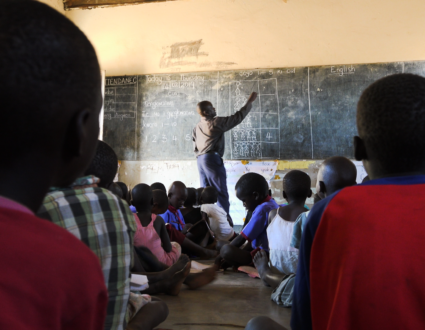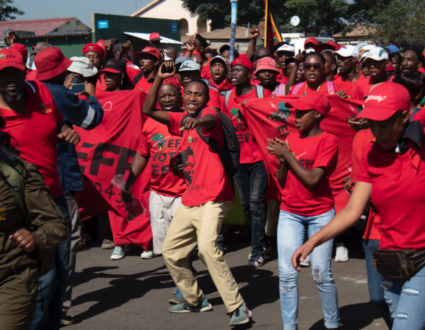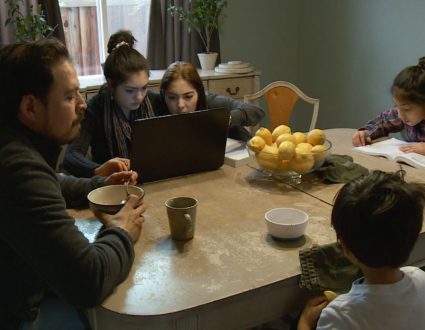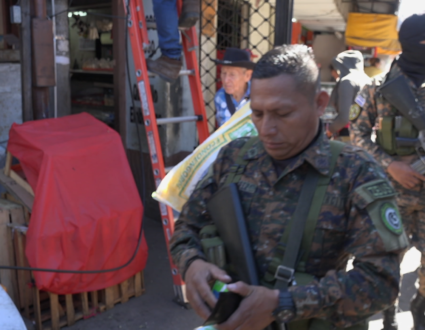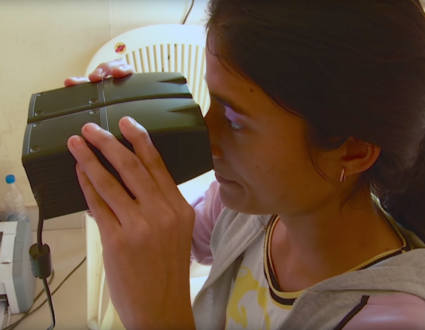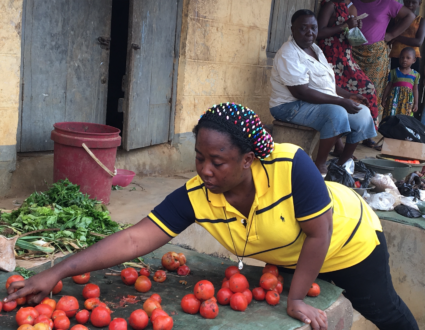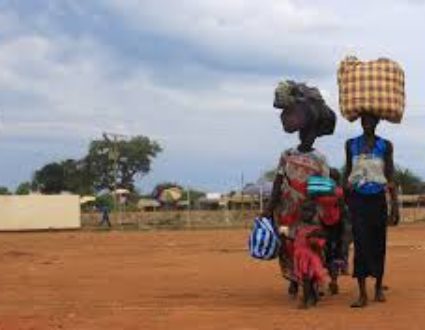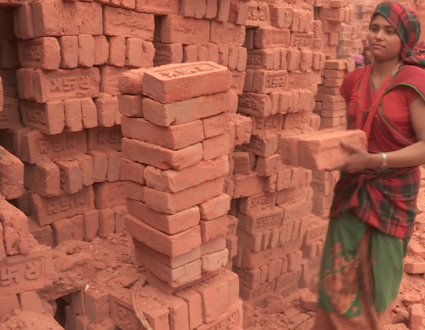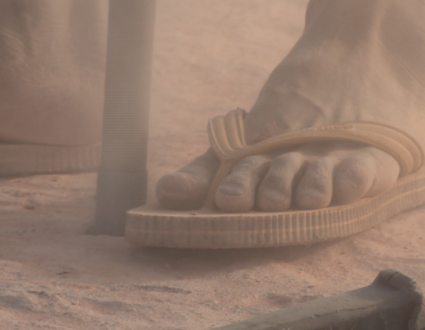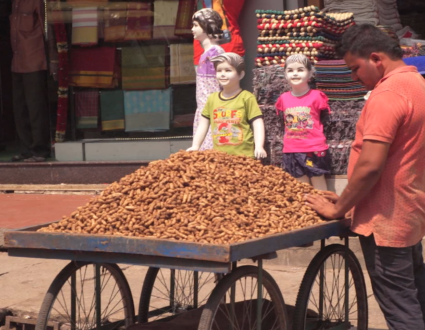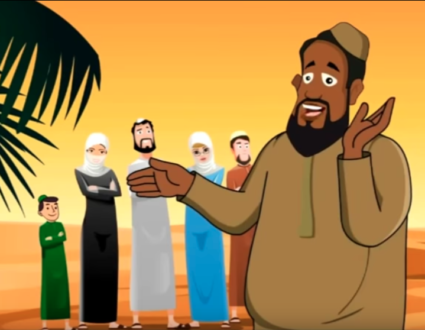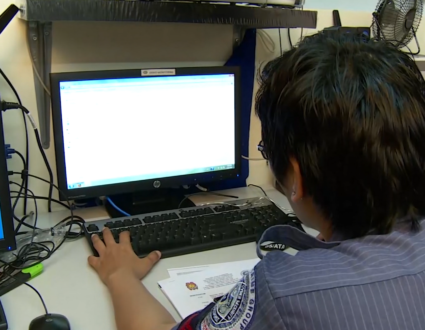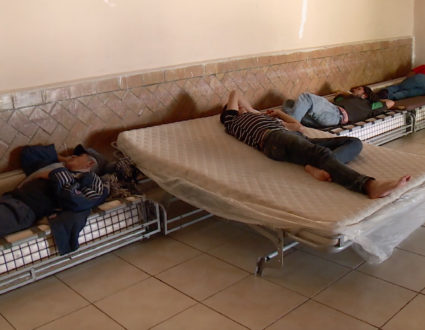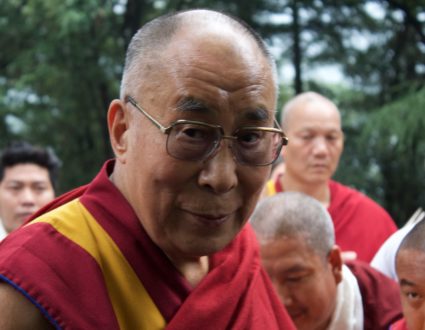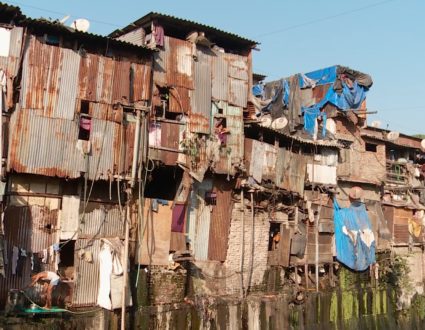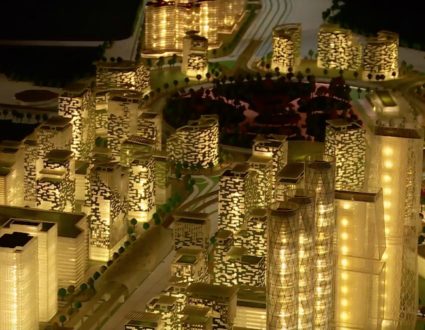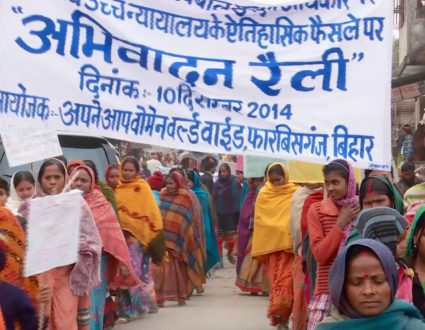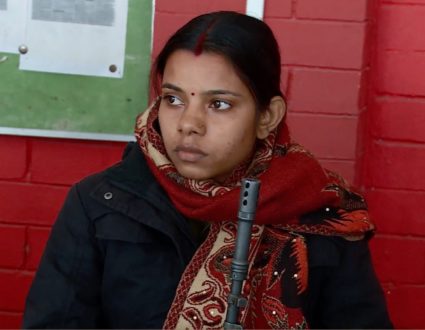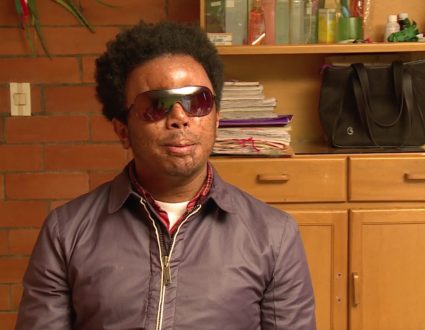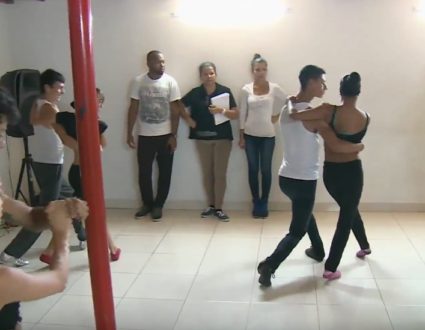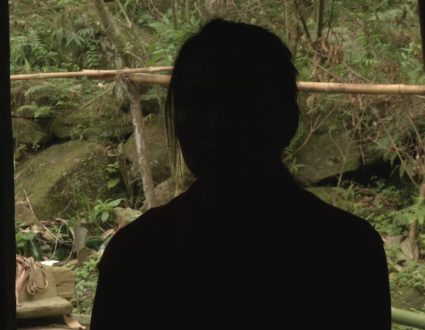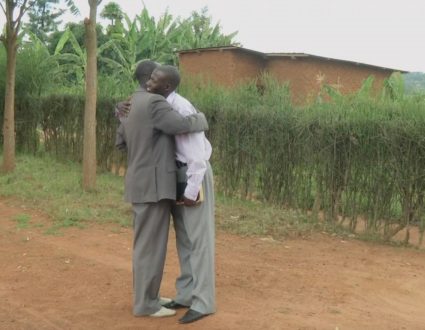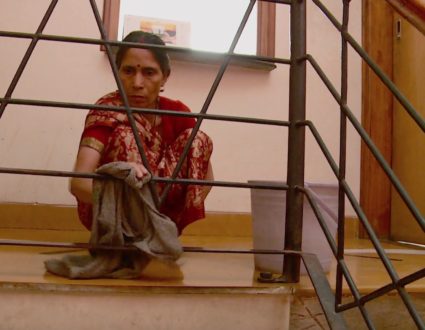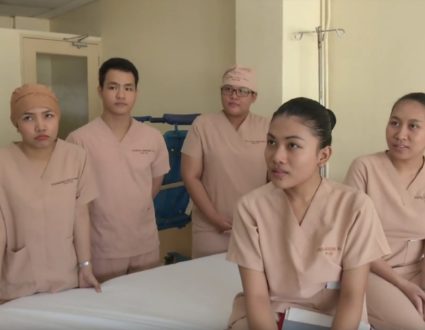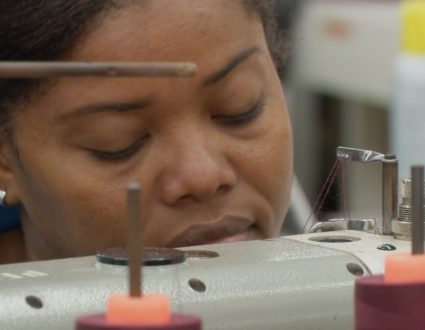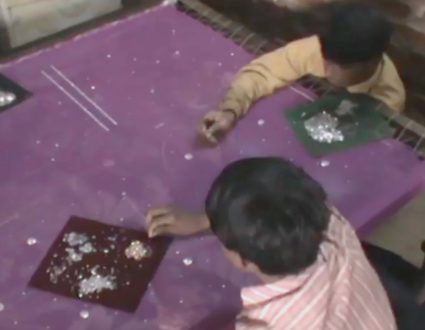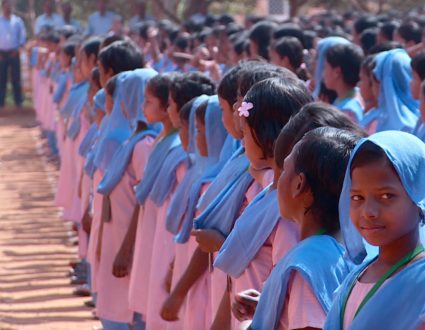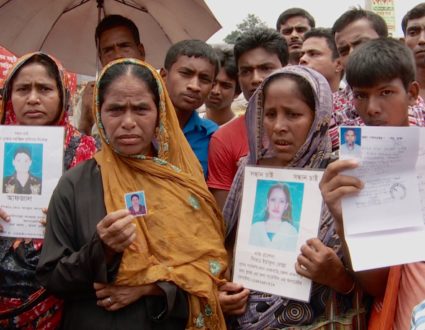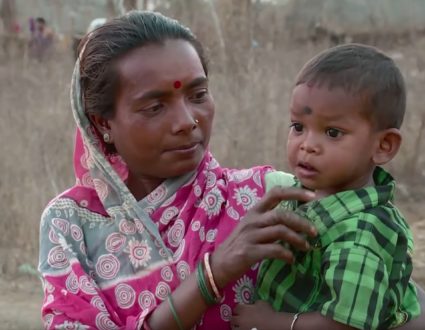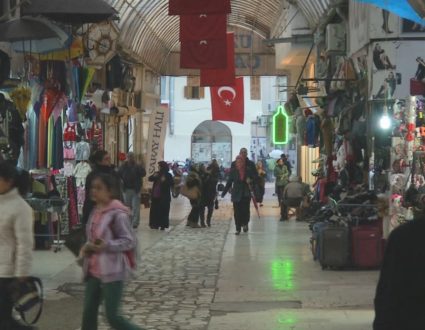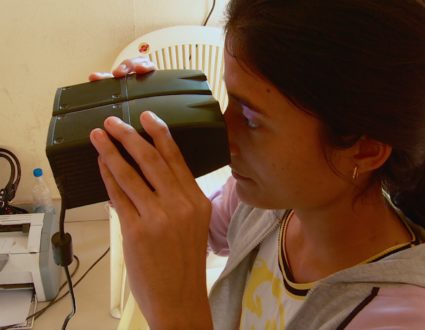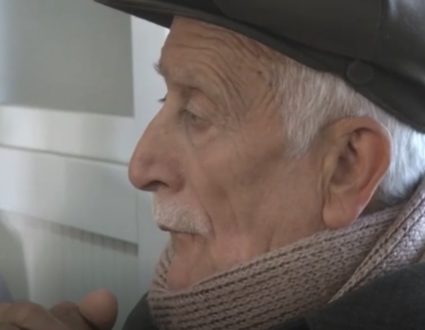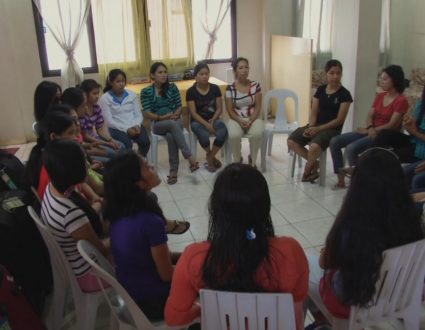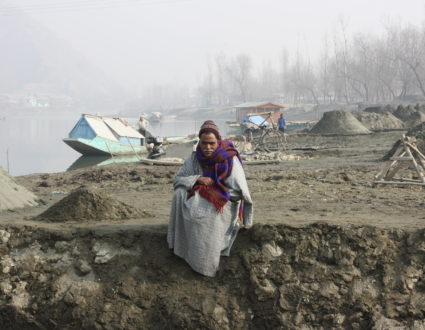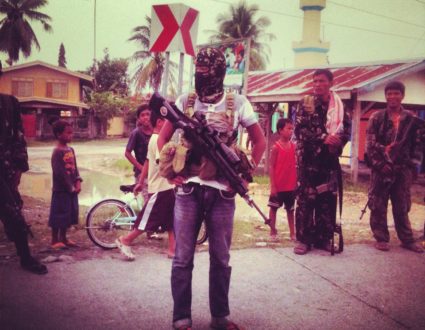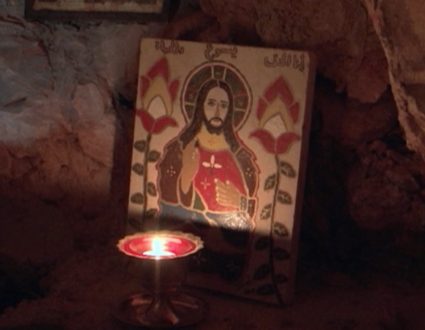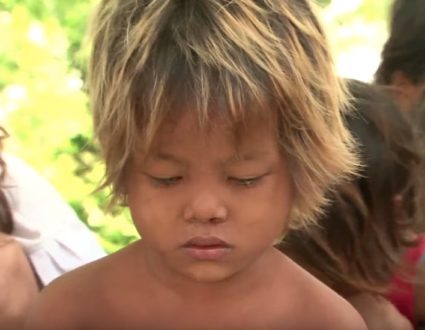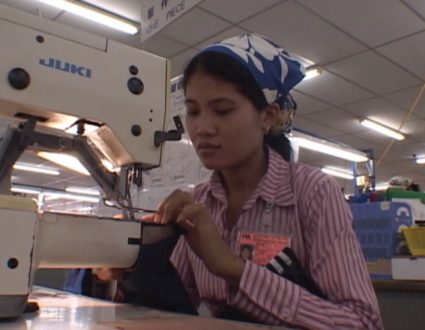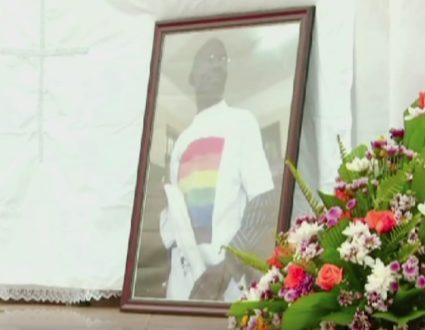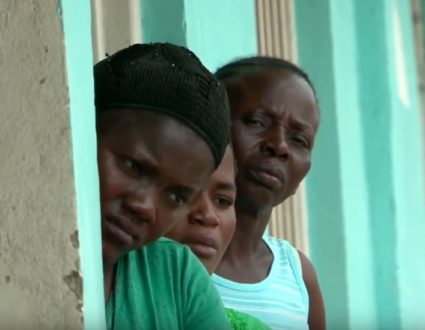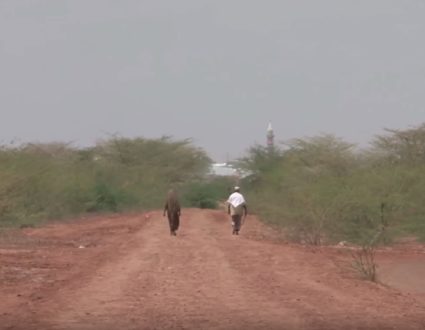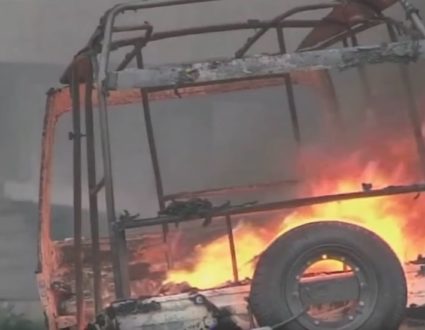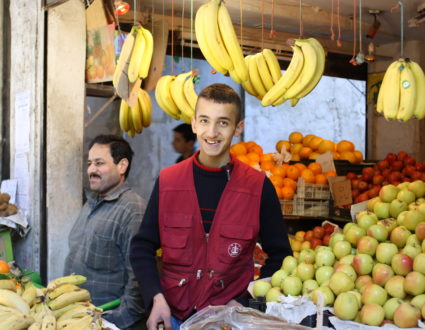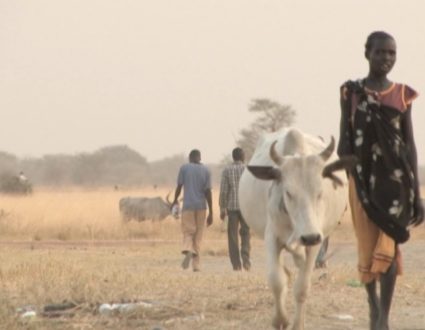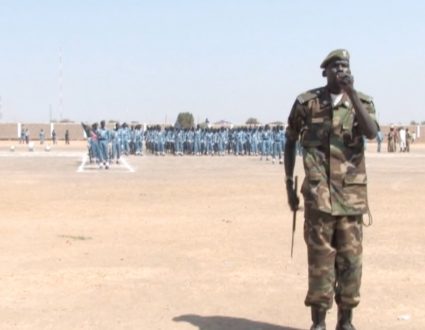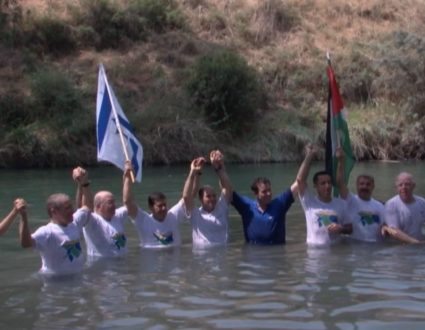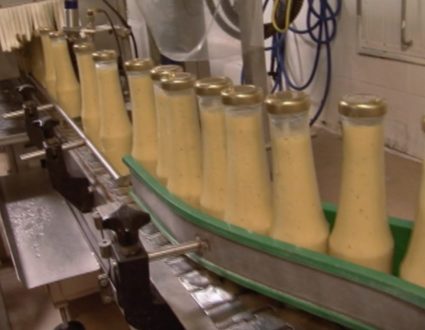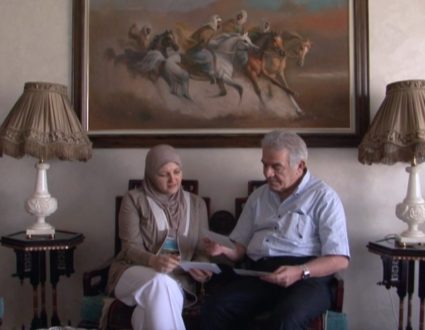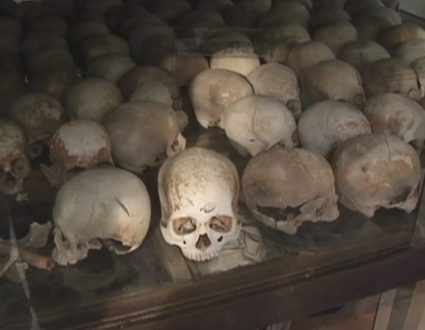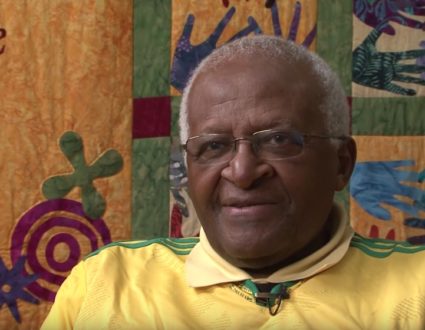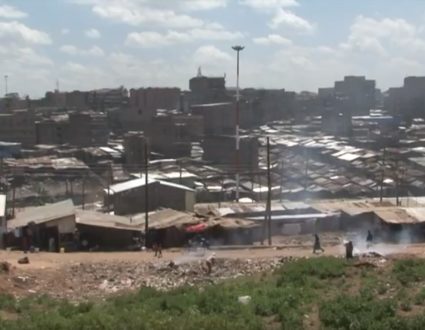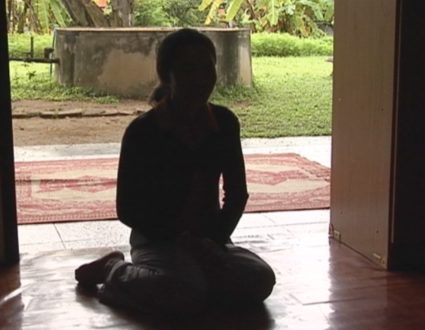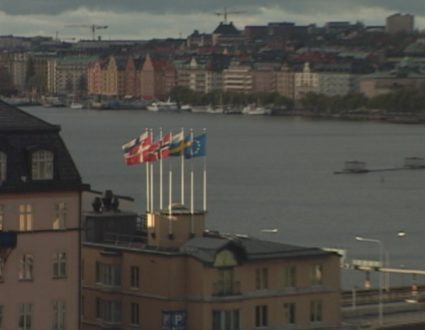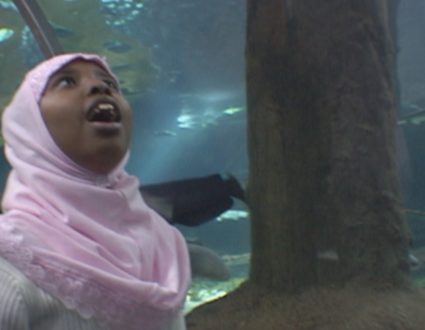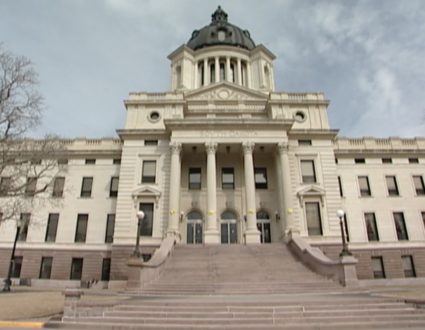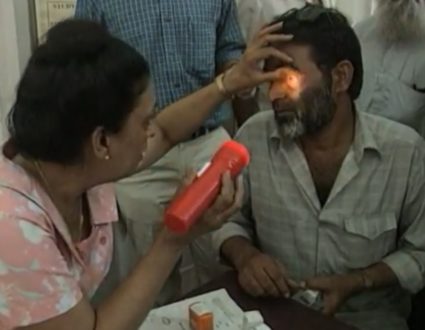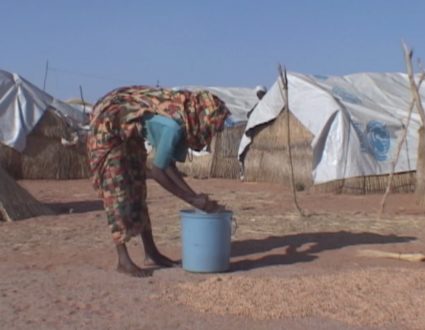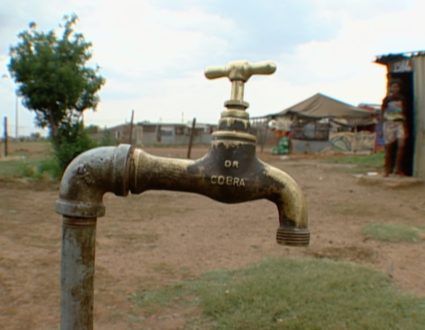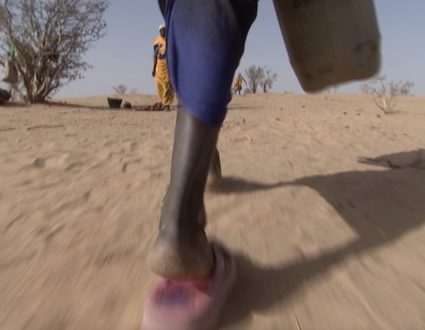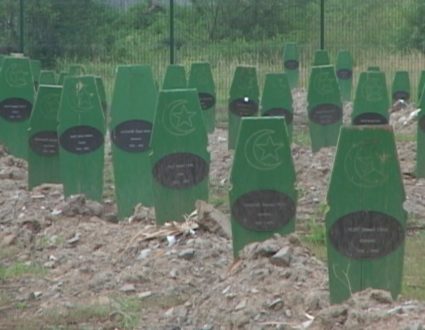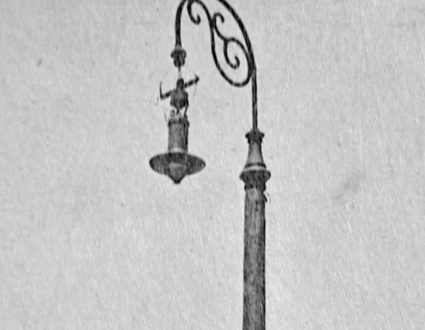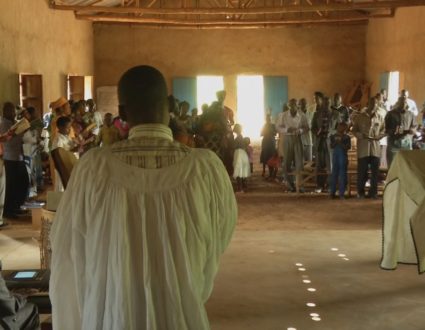FRED DE SAM LAZARO: There are few images of war’s destruction in the eastern Congolese city of Goma. Little was built in the first place. For two decades, regional militias have clashed over the minerals here. U.N. troops have brought some order but their reach-and mandate-are limited. So is the Congolese army’s effort to assert control.
A series of peace agreements and two democratic elections have brought some stability here, although very little development. There’s still virtually no paved road in this whole country. What has continued unabated is an epidemic of sexual violence. The United Nations says the Democratic Republic of Congo is the worst place on earth to be a woman.
One place where you get an idea of what that means is a refuge called HEAL Africa.
Women work to shake off unspeakable atrocities they have faced. The trauma has left most of them with injuries that render them incontinent. This woman wears a mask to conceal her maiming at the hands of militiamen who raided her home one night about a year ago.
ANNONCIATA: My older daughter escaped from them. they told me to go get her. And I said she’d escape from you, how could I ever catch her. Since I wouldn’t give them my daughter, they hit me on the head with a machete and after I fell down they used the same machete to cut off my lips.
DE SAM LAZARO: A volunteer health worker brought her to HEAL Africa. It is the only specialty care hospital in all of Eastern Congo. It was started 12 years ago by British-born Lyn Lusi and her Congolese husband, devout Christians who’d served the region for years before that as medical missionaries.
LYN LUSI(Co-Founder, HEAL Africa): Well, my husband was an orthopedic surgeon. He finished in Belgium in ’84, and to this day he’s still the only one, the only orthopedic surgeon in the east of the country.
DE SAM LAZARO: Dr. Jo Lusi has performed thousands of surgical operations-fixing everything from club feet and cleft palates to fistulas, the vaginal, sometimes rectal tearing that comes from rape trauma or obstructed labor. HEAL Africa has trained nearly 30 young Congolese doctors, paying for their education elsewhere in Africa. Its bare bones emergency and intensive care are the only such services in a region of eight million people-supported by various private and international government grants. Seven hundred children with HIV get life-saving antiretroviral drugs here. But Dr. Lusi says all this is just one part of a much larger idea.
DR. JO LUSI (Co-Founder, HEAL Africa): When you serve human, I don’t see you here like a human. I see you like an image of God, so to do that you have to be holistic. You have to be total, you have to know what about the spirit, about the flesh, about the soul. Here the people are lacking everything. They don’t have food; absolute poverty. They are exploited. They are perishing because of lack of knowledge. They are perishing because of the lack of justice. So me and my wife said OK, how do we do a holistic system?
LYN LUSI: HEAL is an acronym, it stands for health, education, action in the community, and leadership development, and all of those are components of a healthy society.
DE SAM LAZARO: For many patients who come initially for medical care, healing is a years-long process of rebuilding a life. This shelter serves women whose fistulas have not healed-about a quarter of such cases.
BASENYA BANDORA: It is very different here from back in village. People were laughing at me: “She’s smelly, she was raped.” Here people know I am a complete person.
DE SAM LAZARO: Women are taught to sew, make baskets, and raise small animals, and they are allowed to dream.
BANDORA: I want to have a little shop, and I will make bread and I will sit there with my sewing machine and people will bring me things to sew. I will make baskets. If I can have a little house, that would be very nice.
DE SAM LAZARO: For now, for practical purposes, such dreams are pure fantasy, thanks to lingering health problems and also militiamen who continue to raid villages with impunity. Annonciata frequently sees the men who maimed her, but she reacted viscerally to a suggestion she might report them to the police.
ANNONCIATA: Uh uh uh uh! I’m terrified, they would kill me. Only God can punish them for what they did.
DE SAM LAZARO: But HEAL Africa has begun working to bring a more immediate justice to victims of rape. In partnership with the American Bar Association, local lawyers work to apprehend suspects and put them through the legal system here. It is flawed and corrupt but Lyn Lusi says only when Congolese begin to buy into it will it begin to work for them.
LYN LUSI: I would always encourage our legal aid to work ten times more on the issue of bringing the community in line with the law so that they appreciate what the law is trying to do and that they agree with it and that there’s social pressure, there’s a a desire within the community for zero tolerance of sexual violence, of any sort of violence.
DE SAM LAZARO: That’s what brought this 15-year-old girl and her father to the legal clinic to bring charges against a young man who raped her while she went to collect water for the family.
PATRICE KIHUJHO: I want him not only to be put in prison but I also want him to pay for the damages he caused. Last year, I turned 75 years old. When we were growing up, we never saw this kind of behavior. When you liked a girl, we would get married. I am really astonished. I’m not sure what’s going on, how they can take little girls and assault them.
DE SAM LAZARO: Lyn Lusi thinks it’s a consequence of fighting that has raged for two decades in Eastern Congo, destroying any sense of community.
LYN LUSI: You have seen your village destroyed, you’ve seen your people killed, you’re a young man with no future, I mean you have every reason to fight and every reason to go off and join the militia. There are also those militias that will kidnap children and take them into their armies and just to reinforce their ranks. Children are extremely good soldiers in that they have no fear, and they have no conscience.
DE SAM LAZARO: Where does one begin to repair this? The Lusis say they have worked to tap the enduring faith of most Congolese.
LYN LUSI: Here is a mandate to care that’s in the Muslim community, that’s in the Christian community, and it’s present in every single locality in Congo. You could say that probably 95 precent of Congolese will go to a place of worship once a month at least. So this is an amazing power within the community, and if we knew how to mobilize people correctly, around their mandate to care, then you can make a big impact on a social problem.
DE SAM LAZARO: HEAL Africa has gathered religious leaders and other community elders into so-called Nehemiah Committees. These gatherings address sources of violence early on, mediating local business disputes or competing land claims before they escalate. Lyn Lusi says it’s a start.
LYN LUSI: I have no illusions that we’re dealing with major issues that are pulling Congo apart. I don’t think HEAL Africa is going to empty the ocean, but we can take out a bucketful here and a bucketful there. There is so much evil and so much cruelty, so much selfishness and it is like darkness. But if we can bring in some light, the darkness will not overcome the light, and that’s where faith is. We believe that.
DE SAM LAZARO: For her work, Lusi was awarded the 2011 Opus Prize, a one million dollar award given by the Minnesota-based Opus Foundation to a faith-driven social entrepreneur.
For Religion & Ethics NewsWeekly, this is Fred de Sam Lazaro in Goma, Democratic Republic of Congo.
Hope and Healing
The Democratic Republic of Congo is the worst place on earth to be a woman, according to the United Nations. Regional war and rape leave an estimated 1,000 or more women assaulted every day. One organization, HEAL Africa, helps women manage their traumatic injuries holistically. Correspondent Fred de Sam Lazaro reports.

Refuge
HEAL Africa is the only specialty care hospital in all of Eastern Congo
DR. JO LUSI
“When you serve human, I don’t see you here like a human. I see you like an image of God, so to do that you have to be holistic. You have to be total, you have to know what about the spirit, about the flesh, about the soul. Here the people are lacking everything. They don’t have food; absolute poverty. They are exploited. They are perishing because of lack of knowledge. They are perishing because of the lack of justice.”
























